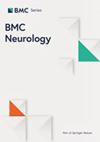Family member reported symptom burden, predictors of caregiver burden and treatment effects in a goal-oriented community-based randomized controlled trial in the chronic phase of traumatic brain injury
IF 2.2
3区 医学
Q3 CLINICAL NEUROLOGY
引用次数: 0
Abstract
Family members are often affected by the long-term consequences of traumatic brain injury, but are rarely involved in rehabilitation programs in the chronic phase. We thus do not know what family members´ main concerns are in the chronic phase, what factors are associated with perceived caregiver burden, and whether family members´ health and functioning improves due to rehabilitation efforts received by the patients. This study explored family-members` functioning, predictors of caregiver burden and effect for family members of a goal-oriented intervention in the chronic phase of traumatic brain injury. Family members self-reported data measuring their caregiver burden, depression, general health, loneliness, and their evaluation of patient competency in everyday life, patient awareness levels, main problem areas (target outcomes) for the patient related to the brain injury, and demographic data were collected. Regression models were used to explore predictors of caregiver burden, and mixed models analysis was used to explore treatment effects. In total, 73 family members were included, 39 in the intervention group and 34 in the control group. Moderate to high caregiver burden was reported by 40% of family members, and 16% experienced clinical levels of depression. Family member loneliness and their evaluation of the patient`s level of functional competency explained 57% of the variability in caregiver burden. There were no treatment-related changes in caregiver burden, family member depression or general health. At T2 there was however a significant reduction in how family members rated severity of target outcomes that the family members had nominated at baseline (-0.38, 95% CI, -0.75 to -0.02, p = 0.04), but not for the target outcomes the patients had nominated. A significant proportion of family members to patients in the chronic phase of TBI continue to experience challenging caregiver burden and emotional symptoms. Both family member-related and patient factors contribute to caregiver burden. Interventions targeting patient complaints do not automatically alleviate family members´ burden. It is important to address social support for family members early after injury, and there is a need for more interventions specifically targeting family members´ needs. The trial was registered at ClinicalTrials.gov, NCT03545594 on the 4th of June 2018.创伤性脑损伤慢性期以目标为导向的社区随机对照试验中家庭成员报告的症状负担、照顾者负担的预测因素和治疗效果
家庭成员经常受到脑外伤长期后果的影响,但却很少参与慢性阶段的康复计划。因此,我们不知道家庭成员在慢性期的主要关注点是什么,哪些因素与感知到的照顾者负担有关,以及家庭成员的健康和功能是否因患者接受康复治疗而得到改善。本研究探讨了家庭成员的功能、照顾者负担的预测因素以及脑外伤慢性期目标导向干预对家庭成员的影响。研究收集了家庭成员的自我报告数据,包括他们的照顾者负担、抑郁、一般健康状况、孤独感,以及他们对患者日常生活能力的评价、患者认知水平、患者与脑损伤相关的主要问题领域(目标结果)和人口统计学数据。研究人员使用回归模型来探究照顾者负担的预测因素,并使用混合模型分析来探究治疗效果。共纳入了 73 名家庭成员,其中 39 名在干预组,34 名在对照组。40%的家庭成员报告了中度到高度的照顾者负担,16%的家庭成员出现了临床水平的抑郁。家庭成员的孤独感和他们对患者功能能力水平的评价解释了照顾者负担变化的 57%。照顾者负担、家庭成员抑郁或总体健康状况没有发生与治疗相关的变化。然而,在第二阶段,家庭成员对基线时提名的目标结果严重性的评价显著降低(-0.38,95% CI,-0.75 至 -0.02,p = 0.04),但对患者提名的目标结果的评价却没有降低。在创伤性脑损伤的慢性阶段,相当一部分患者的家庭成员仍然承受着具有挑战性的护理负担和情绪症状。与家庭成员相关的因素和患者因素都会造成照顾者的负担。针对患者主诉的干预措施并不能自动减轻家庭成员的负担。重要的是要在伤后早期解决家庭成员的社会支持问题,并且需要更多专门针对家庭成员需求的干预措施。该试验于2018年6月4日在ClinicalTrials.gov上注册,编号为NCT03545594。
本文章由计算机程序翻译,如有差异,请以英文原文为准。
求助全文
约1分钟内获得全文
求助全文
来源期刊

BMC Neurology
医学-临床神经学
CiteScore
4.20
自引率
0.00%
发文量
428
审稿时长
3-8 weeks
期刊介绍:
BMC Neurology is an open access, peer-reviewed journal that considers articles on all aspects of the prevention, diagnosis and management of neurological disorders, as well as related molecular genetics, pathophysiology, and epidemiology.
 求助内容:
求助内容: 应助结果提醒方式:
应助结果提醒方式:


